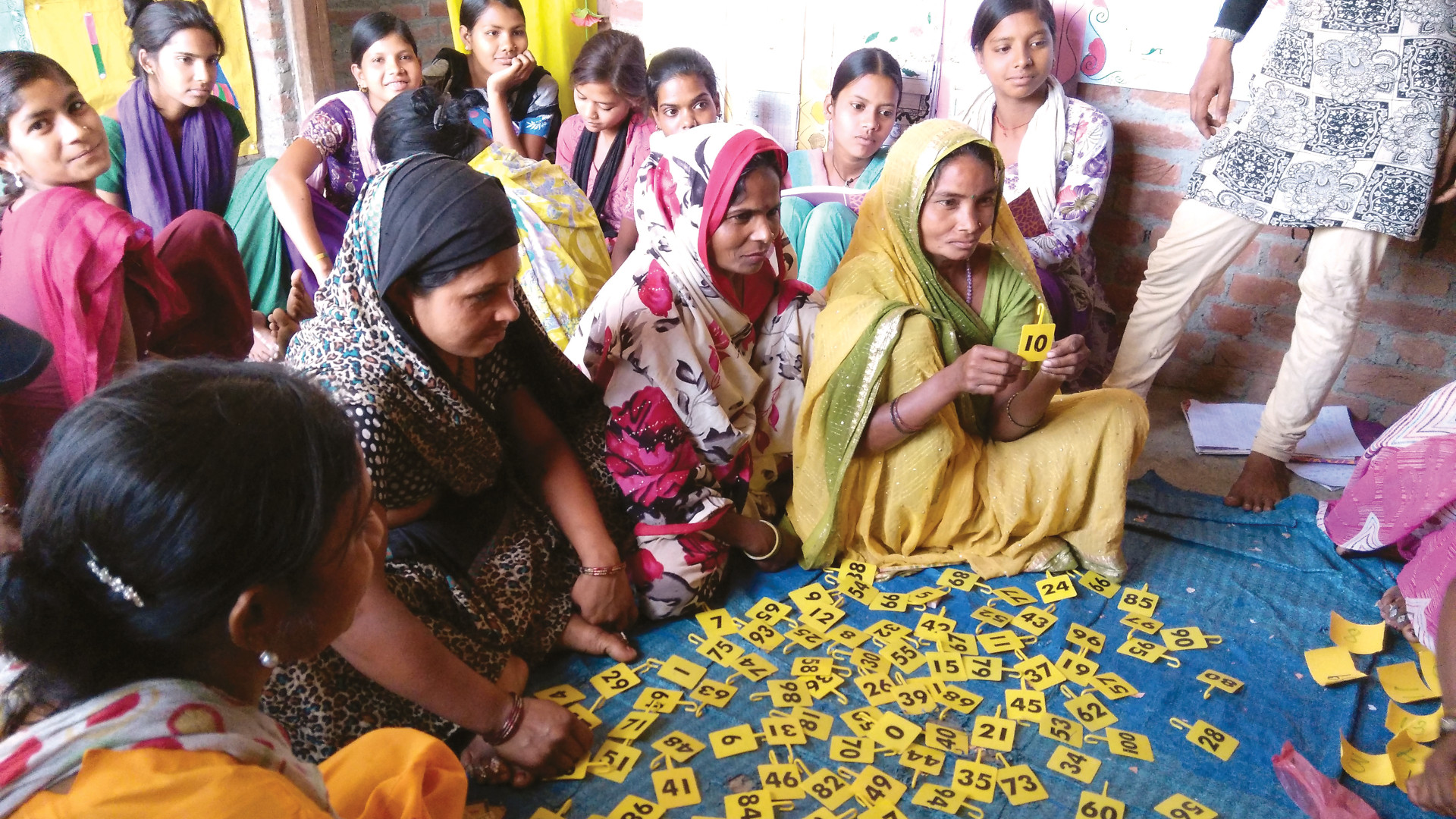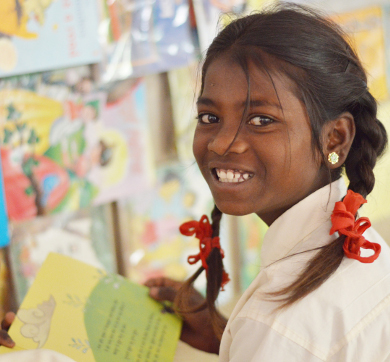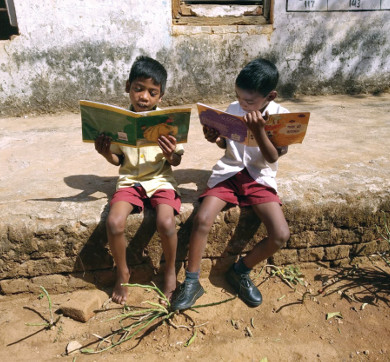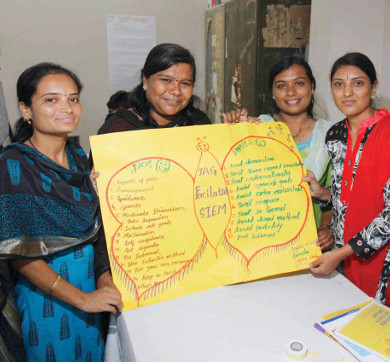December 2019 | 951 words | 4-minute read
Nearly 28% of India’s 1.35 billion citizens do not know how to read or write. Adults constitute the majority and women outnumber men by far. Central and state governments down the years have — a few exceptions aside — struggled to change the situation, but supplementary efforts are critical, including the need for civil society to lend a helping hand.
Among the Tata Trusts’ most sustained and impactful interventions has been a women’s literacy programme seeded in 2002. Currently operational in the Lalitpur, Bahraich and Pratapgarh districts of Uttar Pradesh (UP), the programme has enabled more than 60,000 in the state — and in Rajasthan, Jharkhand and Bihar — to lift themselves out of illiteracy.
Women from Dalit and tribal communities in rural regions are the initiative’s primary target. The Trusts collaborate with non-profits, chief among them Nirantar, a resource organisation working in the field of gender and education, for providing support with teacher training, learning materials, quality control, monitoring and, not least, in tackling the perennial caste and social issues that plague India.
The intervention — first rolled out in Lalitpur, where the literacy rate was under 30% when the programme started — had to confront several challenges to get where it has. Gender discrimination is a systemic problem, especially for rural women, as is physical abuse. In the circumstances, an adult woman wanting to become literate is seen as an anomaly. “At the age of 35-40, their desire to study is often questioned and dismissed by the husbands,” says Archana Dwivedi, Nirantar’s director. “We had to work intensively with mothers-in-law as they are often the first point for permission seeking.”
The next hurdle was hiring teachers. As women teachers from the upper castes were reluctant to take up the job, the Sahjani Shiksha Kendra (SSK) team — the entity created to implement the project — trained Dalit teachers. The newly hired teachers were trained in adult education methods and in teaching learning material specially designed for the programme. Importantly, they were coached on the socio-cultural sensitivities of engaging with Dalit and tribal women.
The literacy centres, set up in homes or areas provided by the village councils or under a tree, train women in batches of 20-25 in a basic level course lasting 18 months; followed by an advanced course. “Nearly 50% of them qualify for the advanced phase,” says Ms Dwivedi. The programme typically lasts 36 months (or even more) in each location, after which the centre is wound up.
Results are tracked through a monthly review and training session for teachers. A five-day refresher course, conducted biannually, takes stock of the programme’s progress and equips teachers with new skills, content and instruction techniques.
The literacy programme — has grown to 75 centres in Bahraich, where it began in late 2016; and to 30 centres in Pratapgarh since its inception there in 2018 — has delivered on its key objectives, enabling women beneficiaries to put their new-found language and numeracy skills to good use, from opening a bank account to claiming benefits under government social welfare schemes.
Perhaps, the chief reason for the programme’s effectiveness is that it does not use traditional textbooks but encourages women to relate their learning to their lives. Accordingly, Nirantar has developed primers for both teachers and students, considering their social context and environment. “They needn’t start from scratch; they just have to formalise their existing knowledge; we see education as an empowering process, where rural women are able to question the everyday injustice and discrimination they face,” says Ms Dwivedi.
Literate and able
Some of the women in Lalitpur, who completed the advanced course, have taken up supervisory roles in projects implemented under the Mahatma Gandhi National Rural Employment Guarantee Act. The literacy centres in Pratapgarh have become employment resource pools for a local milk producer company. In Lalitpur, one of the programme’s beneficiaries is now the sarpanch (head) of her village while another has become a social activist.
The programme’s core purpose, though, remains women’s literacy and what can be achieved through it. “We view this programme both in terms of its capacity to improve the agency of women and its instrumental value in promoting their participation in livelihood programmes, their capacity to engage with the schooling of their children, and take appropriate decisions on health, nutrition and the like,” says Ujjwal Banerjee, manager, education portfolio, the Tata Trusts.



